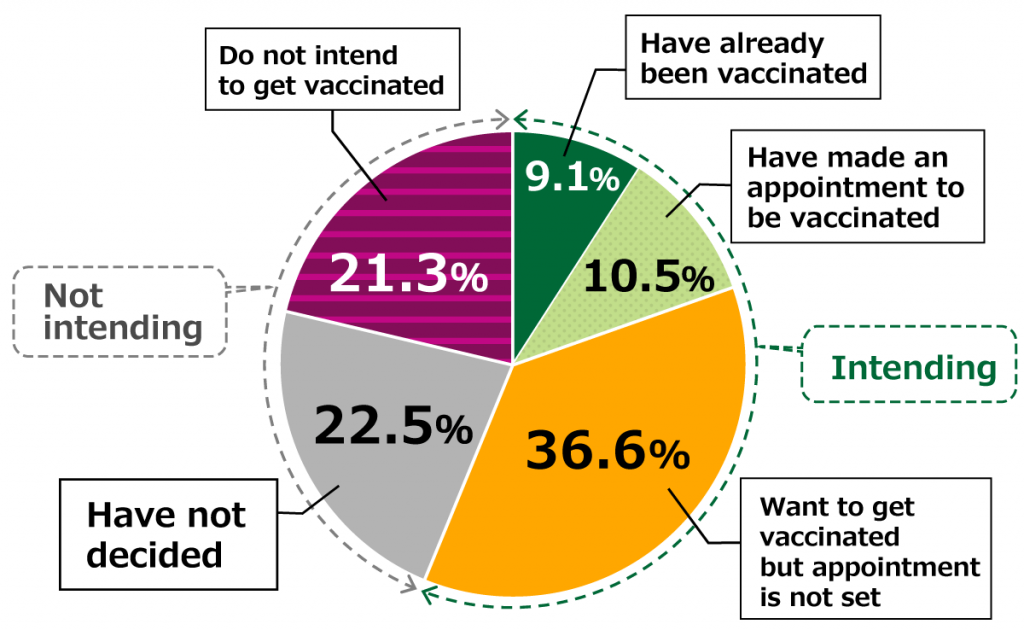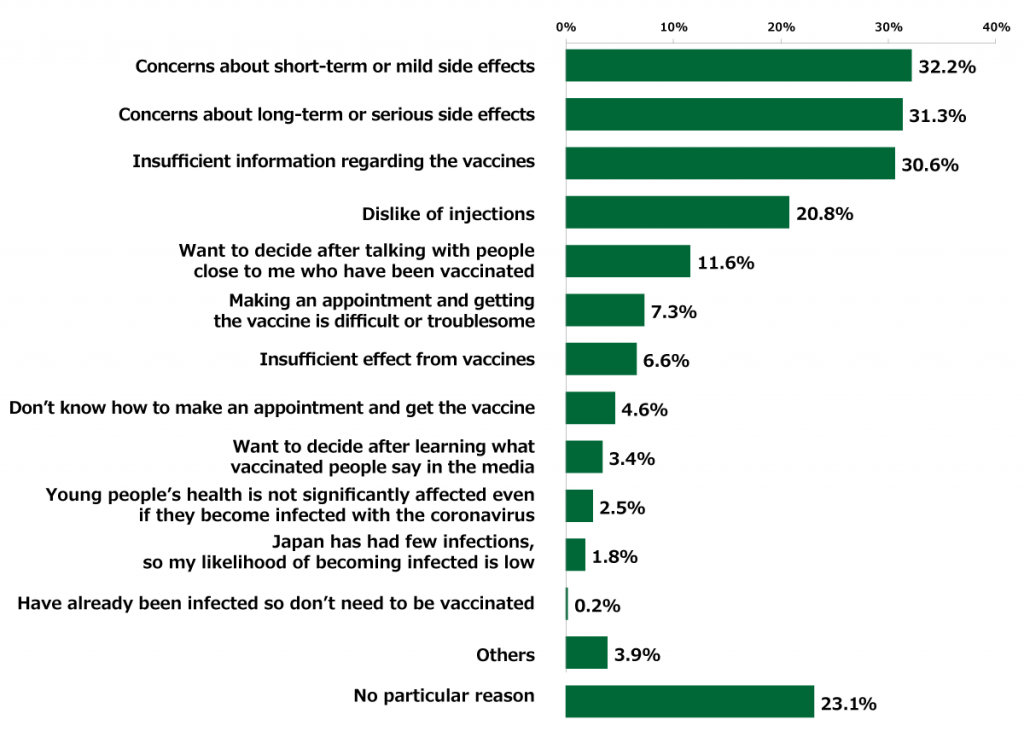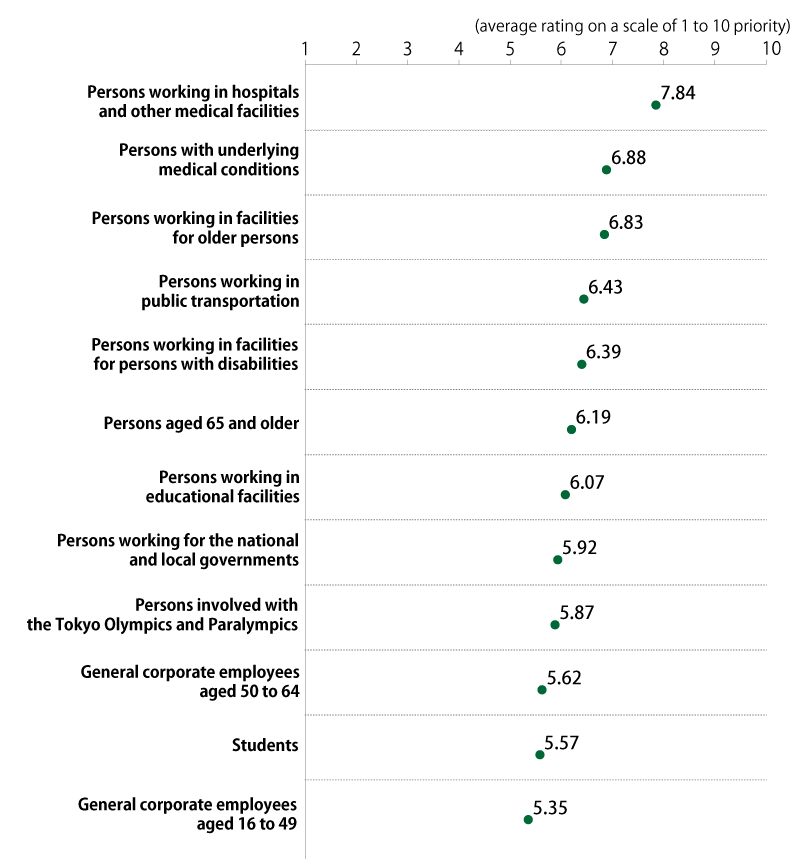Awareness Survey of 18-Year-Olds – Coronavirus VaccinesResults of 40th installment announced
The 40th installment of the Awareness Survey of 18-Year-Olds, launched by The Nippon Foundation in October 2018, was carried out from July 16 to 20 on the subject of “Coronavirus Vaccines.” The survey found that close to 40% of respondents wanted to be vaccinated but had been unable to make an appointment, as well as deep-rooted concern about side effects and an aversion to injections.
In terms of who should be prioritized in receiving vaccinations, the results were significantly different from the government’s rollout, with essential workers in medical and social welfare facilities and public transportation placed highest. The survey also asked young people their opinions on the domestic vaccine passports being proposed by some business groups, and how they should be used.
Notes:
- From the 13th survey, the number of respondents, comprising men and women aged 17 to 19, has been increased to 1,000 from 800. (With the exception of the 20th installment, “Awareness Survey of Society and Country,” all surveys cover respondents in Japan only.)
- In the information below, differences between total amounts and simple sums are due to rounding.
Survey 40. Coronavirus Vaccines (Results announced on August 26, 2021)
Finding: 56.2% of respondents intend to get vaccinated. (n = 1,000)
“Do you intend to get vaccinated?”
- Have already been vaccinated – 9.1%
- Have made an appointment to be vaccinated – 10.5%
- Want to get vaccinated but appointment is not set – 36.6%
- Have not decided – 22.5%
- Do not intend to get vaccinated – 21.3%

Note: Throughout the survey, respondents who replied “Have not decided” or “Do not intend to get vaccinated” are collectively referred to as “not intending” to be vaccinated, and those who replied “Have already been vaccinated,” “Have made an appointment to be vaccinated,” or “Want to get vaccinated but appointment is not set” are collectively referred to as “intending” to be vaccinated.
Finding: Of those respondents who are not intending to get vaccinated, the main reasons were concerns about side effects and insufficient information regarding the vaccines. (up to three answers allowed; n = 438)
“Why don’t you intend to get vaccinated?”

Finding: In general, respondents thought that persons working in medical and social welfare facilities, along with persons with underlying medical conditions and persons working in public transportation, should be given priority in receiving vaccinations. (average rating on a scale of 1 to 10 priority; n = 1,000)
“Who should be given priority in receiving vaccinations?”

Other Findings
- Main sources of coronavirus-related information (multiple answers allowed; n = 1,000)
- Television – 67.2%
- Internet news – 40.8%
- Social media – 34.2%
- National / local government website – 29.5%
- Vaccinated person(s) close to respondent – 22.6%
- Newspaper – 20.1%
- Place of vaccination for respondents who have been or have made an appointment to be vaccinated. (n = 196)
- Workplace / school – 58.2%
- Center established by local government – 19.4%
- Regularly used medical facility – 14.3%
- Support for domestic vaccine passports providing special benefits
- Among respondents intending to get vaccinated (n = 562) – 57.1%
- Among respondents not intending to get vaccinated (n = 438) – 26.3%
Contact
Public Relations Team
The Nippon Foundation
- Email: cc@ps.nippon-foundation.or.jp



